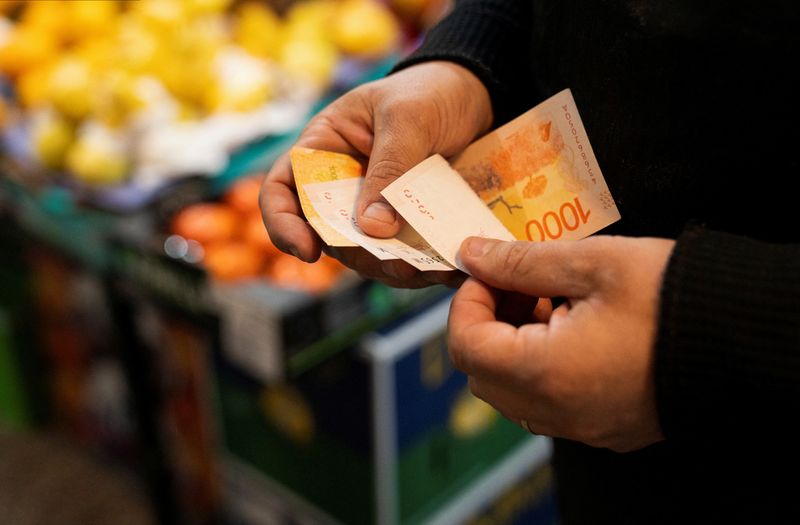By Jorge Otaola
BUENOS AIRES (Reuters) – Argentina’s black market peso weakened 3.91% against the dollar on Wednesday on the informal parallel market, hitting a record low of 1,280 per dollar after the rally earlier this year faltered amid rising political tensions and slow grain exports.
The gap between the official exchange rate and the popular parallel market used to avoid strict capital controls widened to around 44%. That difference had narrowed from almost 200% to less than 18% after libertarian President Javier Milei came to power in December and sharply devalued the official exchange rate.
Traders downplayed a run on the currency, but the Argentine peso has been on a downward trend in recent days due to political tensions, sluggish agricultural sales and the central bank’s decision to cut interest rates to 40 from 50% last week %.
Libertarian President Javier Milei’s government is also facing delays in its reform plans and is hoping for a pact with regional governors, key to getting things done with only a minority in Congress and a limited regional presence.

“You have pressure in Congress, the farmers are bringing in less currency than expected and there is no incentive with the rates to invest in funds,” said a financial trader at private local bank Macro, who asked not to be named.
“Those are enough factors to understand the reason why the dollar is gaining (against the peso).”


